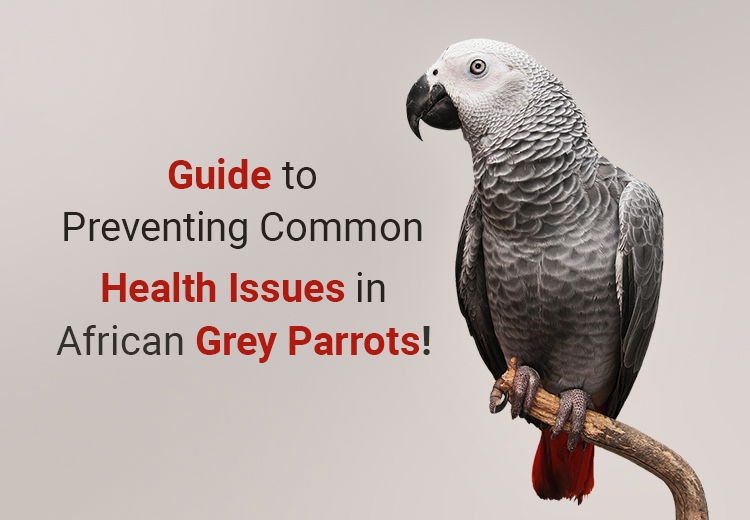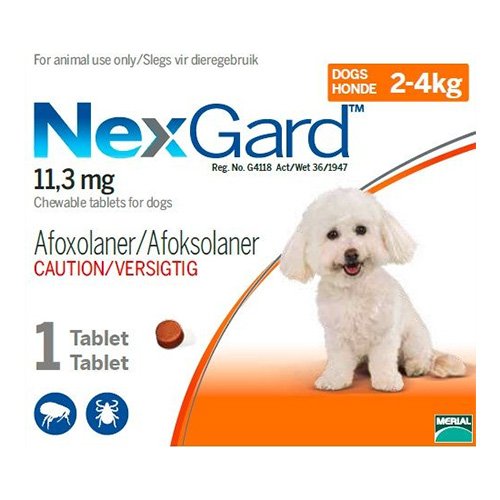-
Popular Brands View All BrandsPopular Brands View All BrandsPopular Brands View All BrandsPopular Brands View All BrandsPopular Brands View All Brands
- Dogs
- Cats
- Brands
- New Arrivals
- Below R150
- Refer & Save More
- Christmas Sale


Dec 09, 2024

The African grey parrot is a highly social and intelligent bird. Its ability to talk and mimic sounds makes it one of the most captivating companions. African grey parrots are often referred to as "the Einsteins of the bird world." Sadly, these parrots can experience serious health issues, which can worsen if left untreated.
In this blog, we will discuss the common health problems the African grey experience and how to prevent them.
Let’s get started!
Here are the common health issues in African Grey parrots:
Psittacosis (Parrot Fever)
Psittacosis is caused by the bacterium Chlamydia psittaci that can spread from birds to humans. These bacteria are found in the droppings and respiratory fluids of infected birds. When these fluids dry up, they can turn into dust that carries the bacteria, which can spread to other birds. The infection can be passed between birds through this contaminated dust or by direct contact with one another. In parrots, it may cause breathing problems, lethargy, and loss of appetite.
Psittacine Beak and Feather Disease (PBFD)
PBFD is caused by circovirus that damages the feathers, beaks, and skin. Affected birds may have abnormal feather growth, fragile beaks, and a weakened immune system. The PBFD virus is primarily shed in feather dander, feces, and oral and nasal secretions of infected birds. When healthy birds come into contact with these particles—either by ingestion or inhalation—they can become infected with the virus. Unfortunately, there is no cure for PBFD, but early veterinary care and quarantine measures can help prevent its spread.
Proventricular Dilatation Disease (PDD)
PDD affects a parrot’s digestive and nervous system. Birds with PDD may have difficulty digesting food, lose weight or show neurological signs like tremors. The disease is linked to Avian Bornavirus (ABV) and has no definitive cure. Inflammation occurs in the affected nerves, along with an infiltration of specific types of white blood cells. ABV is sensitive to heat, dryness, and various disinfectants.
Aspergillosis
Aspergillosis is a fungal infection that affects the respiratory system. This fungus commonly lives on decaying organic matter such as dead leaves, stored grain, compost piles, and other decomposing vegetation. Additionally, Aspergillus can also be found on marijuana leaves. The spores released by the fungus can be inhaled by birds, leading to respiratory issues and other health problems, particularly in susceptible birds.
Hypocalcaemia (Low Calcium Levels)
African grey parrots are prone to hypocalcaemia- which causes blood calcium levels to drop significantly. The abnormalities of the parathyroid gland or insufficient sunlight exposure may lead to low calcium levels (hypocalcaemia) in birds. Without sufficient vitamin D3, which is synthesized from sunlight, the body struggles to convert calcium properly, resulting in acute hypocalcaemia. This can cause muscle tremors, seizures, or weakness.
To keep your African grey parrot healthy, regular preventive care is essential. Here are some tips to ensure their well-being:
Conclusion
Maintaining the health of your African grey parrot requires care and attention to their specific needs. By being aware of the common health issues they face and taking proactive measures, you can help ensure a long, happy, and healthy life for your feathered friend.
Nov 30, 2024
As dog parents, we want to protect our canine companions from all the possible problems including parasites. Intestinal worms are one such ...
Nov 13, 2024
It is time to welcome the holiday season. With Thanksgiving just around the corner, the preparations for the celebration have started in fu...



© 2024 BudgetPetSupplies.co.za (MSV Pet Care (Pty) Ltd.) - All Rights Reserved.







